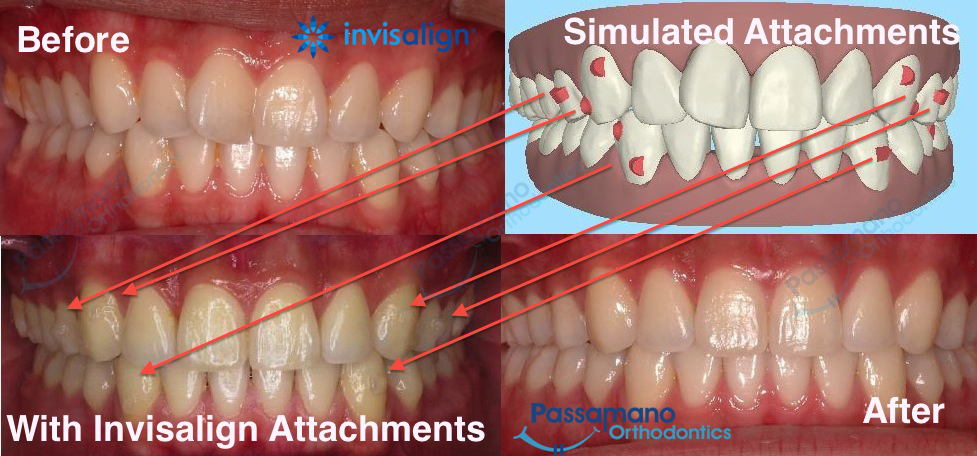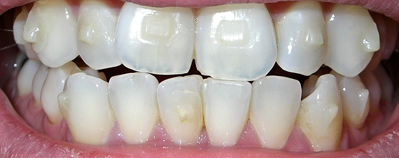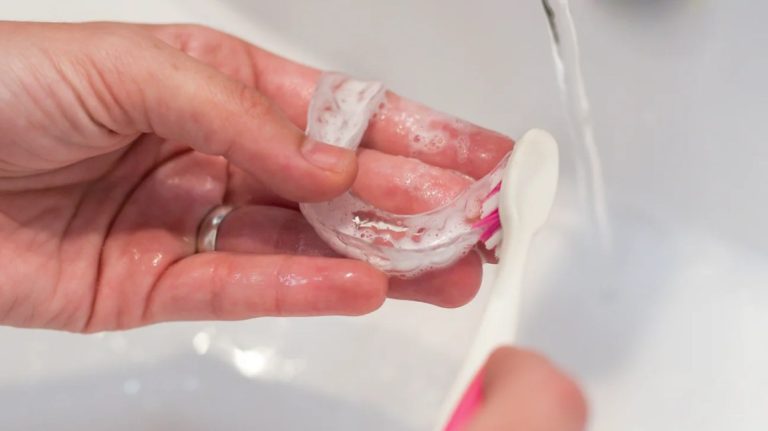How to Remove Invisalign Attachments: Quick & Safe Tips
Last Updated on 4 months by DR. ALBIN SIPES
To remove Invisalign attachments, consult your orthodontist for professional assistance. Attempting to do it yourself can cause damage to your teeth or attachments.
Invisalign attachments are small, tooth-colored buttons that help align your teeth effectively. They play a crucial role in ensuring that the aligners move your teeth into the desired position. While these attachments are temporary, they may feel daunting to remove.
Many patients wonder how to safely eliminate them once their treatment is complete. Removing these attachments can be a straightforward process if done correctly. Professional guidance ensures that you avoid any potential harm to your teeth. This guide provides essential information on the best practices for removing Invisalign attachments, ensuring a smooth transition as you complete your orthodontic journey.
Introduction To Invisalign Attachments
Invisalign attachments are small, tooth-colored bumps on your teeth. They help align your teeth better during treatment. These attachments provide extra grip for the aligners. This makes it easier for them to move your teeth into place.
Many people have concerns about attachments. They worry about comfort and how they look. Attachments are usually not painful. Most patients adapt quickly to them. The bumps are designed to be as discreet as possible.
| Concern | Response |
|---|---|
| Comfort | Most users report minimal discomfort. |
| Aesthetics | Attachments blend with the natural color of teeth. |
| Removal | Only a dentist can safely remove them. |
Preparation For Removal
Removing Invisalign attachments requires careful preparation. Start with a professional consultation. A dentist will assess your needs. They will explain the removal process. This ensures safety and effectiveness.
Gather the right tools and materials before starting. Here is a simple list:
| Tools/Materials | Purpose |
|---|---|
| Dental scaler | To gently remove attachments |
| Dental mirror | To see the attachments clearly |
| Soft cloth | To clean the area after removal |
| Water | To rinse the mouth |
Having these tools ready helps the process go smoothly. Always follow your dentist’s advice during removal.
The Removal Process
Removing Invisalign attachments can be simple. Follow these steps for a smooth process.
1. Gather your tools: You’ll need a dental tool, mirror, and a soft cloth.
2. Check the attachments: Look closely at the attachments on your teeth. Make sure you know where they are.
3. Gently wiggle the attachment: Use the dental tool to carefully move the attachment. Be gentle to avoid hurting your gums.
4. Pull it off: Once it’s loose, you can pull it off with your fingers.
5. Clean the area: Rinse your mouth to remove any residue. Use a soft cloth to wipe your teeth.
Safety precautions are important. Avoid using too much force. If you feel pain, stop immediately. Always consult your dentist if unsure.

Credit: youbraces.com
Aftercare Post-removal
After removing Invisalign attachments, cleaning your teeth is very important. Use a soft toothbrush to gently scrub your teeth. Make sure to use fluoride toothpaste for better protection. Rinse your mouth thoroughly with water after brushing. This helps remove any leftover debris.
For attachment site care, avoid using harsh mouthwashes. Choose a mild mouthwash to prevent irritation. Keeping the area clean helps avoid infection. If any soreness occurs, rinse with warm saltwater. This can soothe your gums and promote healing.
Potential Risks And How To Avoid Them
Removing Invisalign attachments can pose risks. Damage to enamel is one of the main concerns. Using the wrong tools may scratch or chip your teeth. Always use specialized tools recommended by your dentist.
Preventing infection is crucial after removal. Clean the area gently with a soft toothbrush. Rinse with an antibacterial mouthwash to keep the site clean. Avoid touching the area with dirty hands. Follow your dentist’s aftercare instructions carefully.
Diy Vs. Professional Removal
DIY removal of Invisalign attachments can be safe if done carefully. This is best for minor issues or if attachments are loose. Use a tool like a dental pick or a soft cloth to gently wiggle them free. Always check for any pain or discomfort.
Seeking professional help is wise for stubborn attachments. Dentists have the right tools and experience. They ensure no damage happens to your teeth. If any bleeding or pain occurs, visit a dentist immediately. It’s important to prioritize your oral health above all.
Maintaining Invisalign Treatment Post-attachment
After removing Invisalign attachments, wearing retainers is crucial. Retainers help keep teeth in their new positions. They prevent shifting back to old spots. Wearing them consistently ensures a successful treatment outcome.
Maintaining oral hygiene is also very important. Brush your teeth at least twice a day. Use a soft-bristle toothbrush and fluoride toothpaste. Floss daily to remove food particles between teeth. Rinse with an antibacterial mouthwash for extra protection.
Regular visits to your dentist are necessary. They can check your progress and provide guidance. Follow their advice to maintain a healthy smile.

Credit: www.youtube.com
Final Thoughts
Removing Invisalign attachments is an important step in your treatment. Ensure that you follow the proper methods. Always consult your orthodontist before attempting removal.
Using the right tools makes the process easier. A gentle touch is vital to avoid damaging your teeth. Keep your attachments clean and free from debris.
After removal, follow your orthodontist’s advice for care. This helps maintain your smile and ensures successful treatment. Regular check-ups are essential for monitoring progress.
Responsible practices lead to better outcomes. Always prioritize your oral health. Remember, a healthy smile is worth the effort!

Credit: myinvisalignblog.com
Conclusion
Removing Invisalign attachments can be straightforward with the right approach. Always follow your orthodontist’s guidance for the best results. Use the proper tools and techniques to avoid damage to your teeth. A smooth removal process ensures your treatment stays on track.
Enjoy your journey to a straighter smile with confidence!


